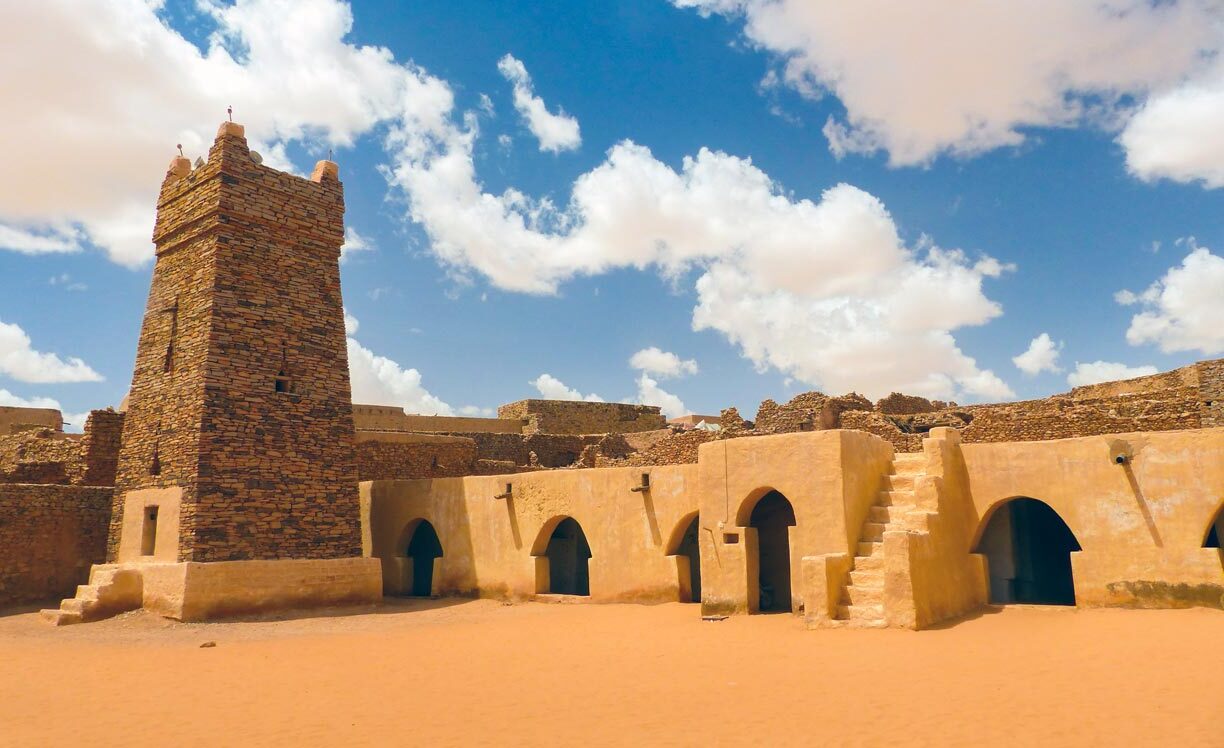
Mauritania, a country in West Africa, often flies under the radar but holds a treasure chest of intriguing facts. Did you know Mauritania is one of the least densely populated countries in the world? With vast deserts and a rich cultural heritage, it offers a unique blend of history and natural beauty. The capital, Nouakchott, is a bustling hub, yet much of the nation remains untouched by modernity. Mauritania's economy heavily relies on mining and fishing, making it a vital player in these industries. From ancient cities to stunning landscapes, Mauritania has stories waiting to be told. Ready to learn more? Let's dive into 20 fascinating facts about this hidden gem!
Key Takeaways:
- Mauritania is a vast desert country with a rich history and diverse culture. Its economy relies on natural resources, and its people are known for their hospitality and traditional clothing.
- The country's landscape is dominated by the Sahara Desert, but it also boasts a beautiful coastline along the Atlantic Ocean. With a population of around 4.5 million, Mauritania is a unique blend of desert and coastal beauty.
Geography and Landscape
Mauritania, located in West Africa, is a country with a unique blend of desert and coastal landscapes. Here are some intriguing facts about its geography and landscape.
- Mauritania is the 11th largest country in Africa, covering an area of approximately 1,030,000 square kilometers.
- The Sahara Desert covers about 90% of Mauritania's land area, making it one of the most arid countries in the world.
- The country has a coastline along the Atlantic Ocean that stretches for about 754 kilometers.
- The Banc d'Arguin National Park, a UNESCO World Heritage site, is located on the coast and is famous for its diverse bird species.
- Mauritania's highest point is Kediet ej Jill, which stands at 915 meters above sea level.
History and Culture
Mauritania's history and culture are rich and diverse, influenced by various civilizations and traditions. Let's explore some fascinating facts about its historical and cultural heritage.
- The ancient city of Chinguetti, founded in the 13th century, is one of the oldest cities in Mauritania and a center of Islamic scholarship.
- Mauritania gained independence from France on November 28, 1960.
- The country is named after the ancient Berber kingdom of Mauretania, which existed in the region during the classical era.
- Traditional Mauritanian music, known as "griot," is an important part of the country's cultural heritage.
- The annual Festival of Nomadism celebrates the traditional nomadic lifestyle of Mauritania's people.
Economy and Resources
Mauritania's economy is largely based on natural resources and agriculture. Here are some key facts about its economic landscape.
- Iron ore mining is a major industry in Mauritania, accounting for nearly half of the country's total exports.
- The country also has significant deposits of gold, copper, and gypsum.
- Fishing is another important sector, with the coastal waters being rich in fish and other marine resources.
- Agriculture, including livestock farming, is a vital part of the economy, with many Mauritanians relying on it for their livelihood.
- The national currency of Mauritania is the ouguiya.
People and Society
The people of Mauritania are known for their hospitality and diverse cultural backgrounds. Let's look at some interesting facts about its society.
- Mauritania has a population of approximately 4.5 million people, with a mix of Arab-Berber and Black African ethnic groups.
- The official language is Arabic, but French is also widely spoken due to the country's colonial history.
- Islam is the predominant religion, with nearly 100% of the population being Muslim.
- Traditional Mauritanian clothing includes the "boubou" for men and the "melfa" for women, both of which are loose-fitting garments suited to the desert climate.
- The literacy rate in Mauritania is around 53%, with ongoing efforts to improve education and literacy across the country.
Final Thoughts on Mauritania
Mauritania's rich history and unique culture make it a fascinating place. From its ancient cities to the vast Sahara Desert, there's so much to learn. The country's diverse population, with its mix of Arab and African influences, adds to its vibrant culture. The traditional music, dance, and cuisine offer a glimpse into the daily lives of its people. Despite challenges, Mauritania continues to grow and develop, making strides in education and infrastructure. The country's natural beauty, including its stunning coastline and national parks, attracts visitors from around the world. Understanding Mauritania's past and present helps appreciate its role in the global community. Whether you're interested in history, culture, or nature, Mauritania has something to offer. Keep exploring and learning about this incredible country, and you'll uncover even more amazing facts.
Frequently Asked Questions
Was this page helpful?
Our commitment to delivering trustworthy and engaging content is at the heart of what we do. Each fact on our site is contributed by real users like you, bringing a wealth of diverse insights and information. To ensure the highest standards of accuracy and reliability, our dedicated editors meticulously review each submission. This process guarantees that the facts we share are not only fascinating but also credible. Trust in our commitment to quality and authenticity as you explore and learn with us.


